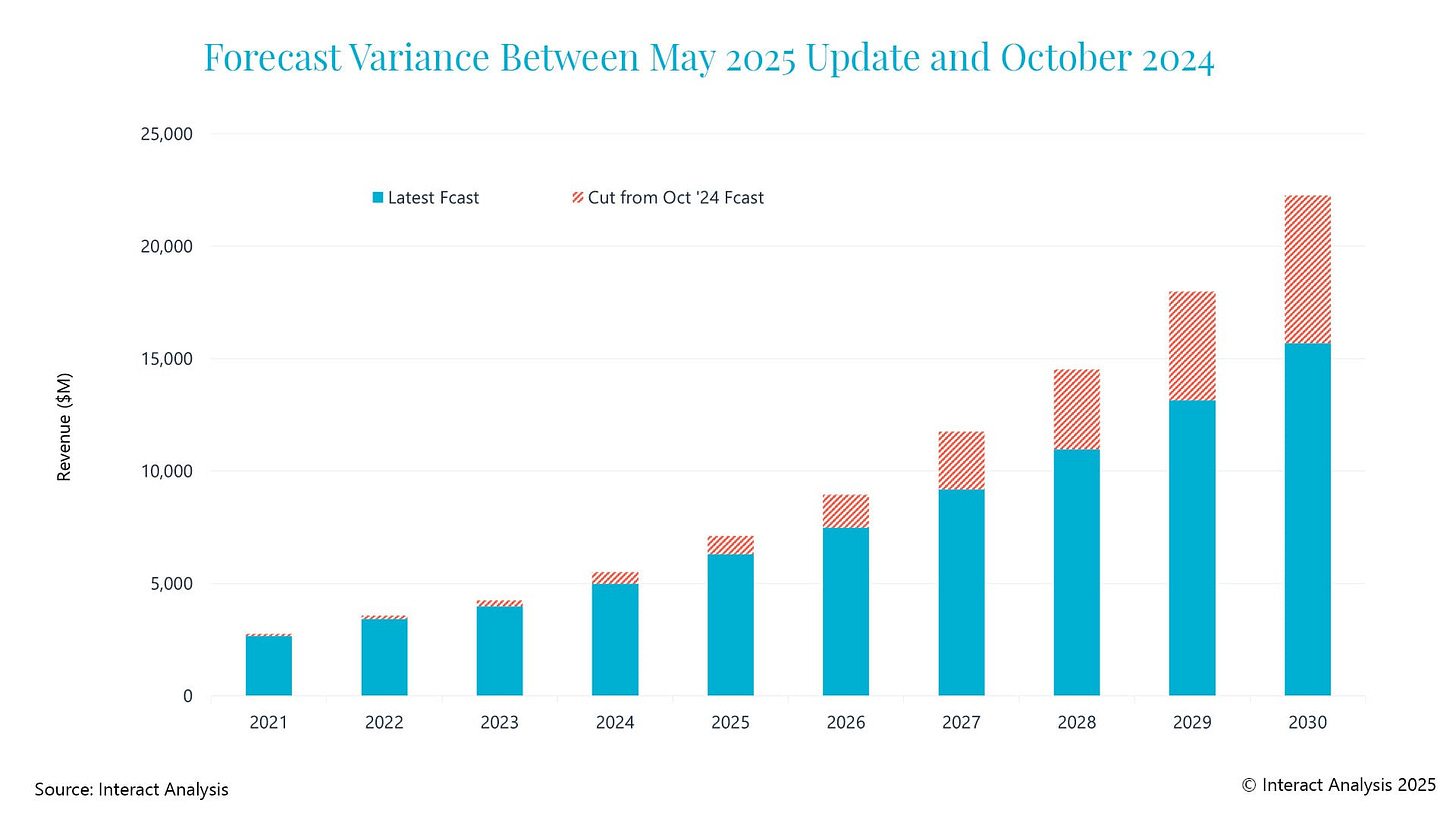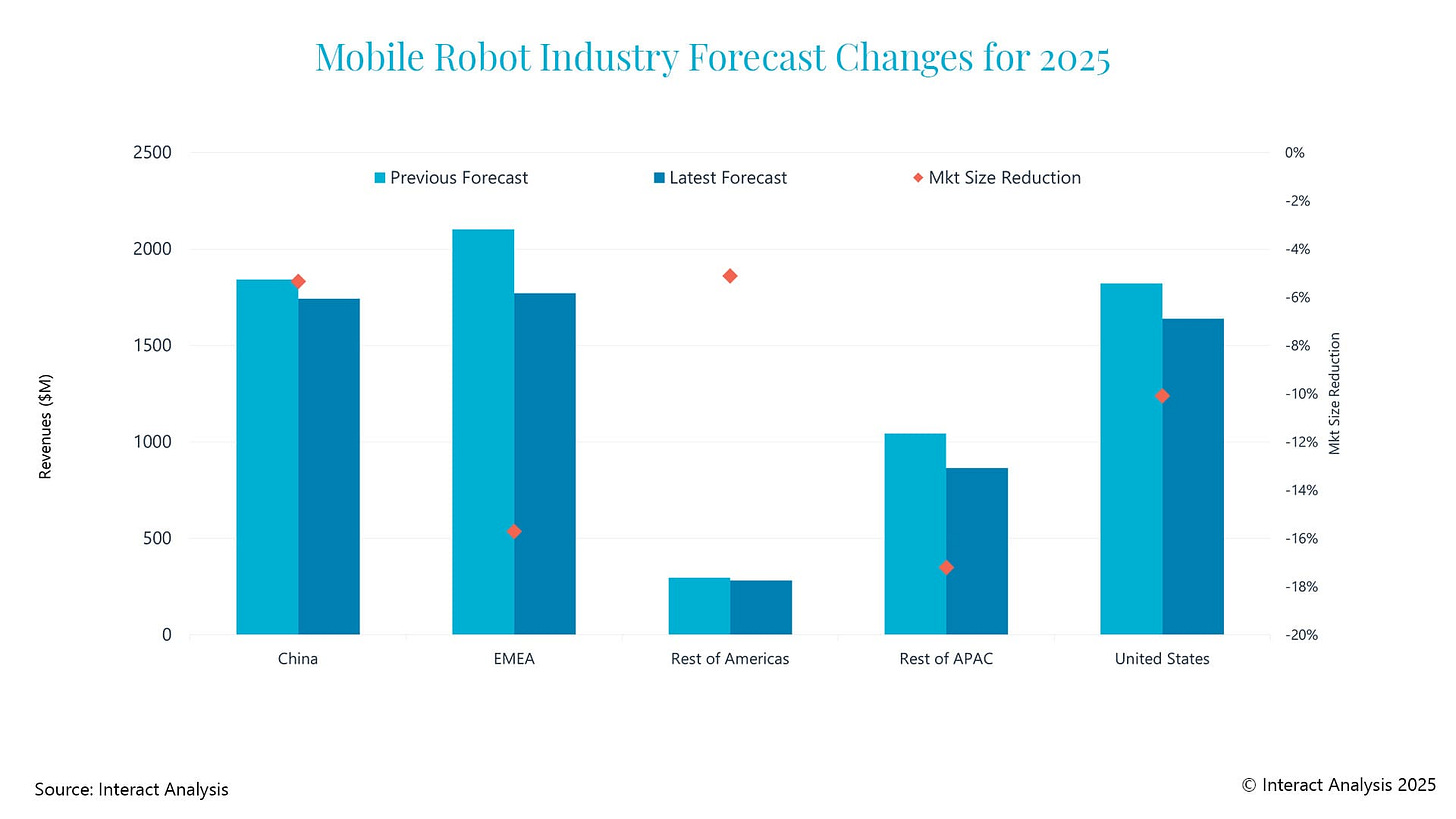Global industrial robot market fell , Kassow’s sensitive arm, ABB upgrades Flexley, and more
Daily brief on news from the world of autonomous mobile robots.

Japan’s car industry sees highest robot installations in five years
Japan’s automotive sector installed approximately 13,000 industrial robots in 2024, marking an 11% rise from the previous year and the highest level since 2020. This surge highlights Japan’s ongoing leadership in global robot manufacturing, representing 38% of worldwide production. The increase is driven by the industry’s shift toward alternative powertrains, including electric and hydrogen-fuelled vehicles, and underscores the vital role of automation in adapting to new manufacturing demands.
Global industrial robot market contracted 5.8% last year, but signs of recovery emerge
Meanwhile, the global industrial robot market experienced a 5.8% decline in sales revenue in 2024, primarily due to reduced manufacturing activity and falling prices. Despite this downturn, analysts anticipate a gradual recovery beginning in 2025, especially in the Asia-Pacific region. The Americas are expected to maintain market position, while Europe may lag. The report notes resilience in consumer-related sectors and highlights improving market sentiment as economies emerge from recession.
Kassow Robots introduces sensitive arm technology for enhanced collaborative robotics
Kassow Robots has unveiled a new sensitive arm technology designed to improve collaborative robotics. This innovation enables robots to work more safely and efficiently alongside humans by enhancing tactile feedback and precision. The technology is expected to accelerate the adoption of collaborative robots in various industries, facilitating more flexible and dynamic production environments. It represents a significant step toward safer human-robot interaction and greater operational versatility in manufacturing and logistics.
ABB upgrades Flexley Mover AMR with visual SLAM capabilities
ABB has enhanced its Flexley Mover autonomous mobile robot (AMR) by integrating 3D visual SLAM (Simultaneous Localization and Mapping) navigation and user-friendly AMR Studio programming software. This upgrade aims to make AMRs more versatile, efficient, and easier to deploy in industrial settings. The new capabilities enable improved navigation in dynamic environments, supporting ABB’s broader strategy to offer flexible and scalable automation solutions for logistics and manufacturing.
Animal-inspired AI robot learns to navigate unfamiliar terrain
Researchers have developed an animal-inspired AI robot capable of learning to traverse unfamiliar terrain. This advancement leverages artificial intelligence to mimic animal locomotion, enabling robots to adapt to complex and unpredictable environments. Such technology holds promise for applications ranging from search and rescue to planetary exploration, where adaptability and autonomous decision-making are crucial for success in challenging conditions.



